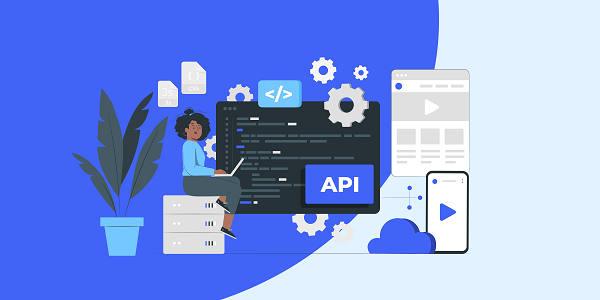Residential Proxies
Allowlisted 200M+ IPs from real ISP. Managed/obtained proxies via dashboard.

Proxies
Residential Proxies
Allowlisted 200M+ IPs from real ISP. Managed/obtained proxies via dashboard.
Residential (Socks5) Proxies
Over 200 million real IPs in 190+ locations,
Unlimited Residential Proxies
Use stable, fast, and furious 700K+ datacenter IPs worldwide.
Static Residential proxies
Long-lasting dedicated proxy, non-rotating residential proxy
Dedicated Datacenter Proxies
Use stable, fast, and furious 700K+ datacenter IPs worldwide.

Web Unblocker
View content as a real user with the help of ABC proxy's dynamic fingerprinting technology.
Proxies
API
Proxy list is generated through an API link and applied to compatible programs after whitelist IP authorization
User+Pass Auth
Create credential freely and use rotating proxies on any device or software without allowlisting IP
Proxy Manager
Manage all proxies using APM interface

Proxies
Residential Proxies
Allowlisted 200M+ IPs from real ISP. Managed/obtained proxies via dashboard.
Starts from
$0.77/ GB
Residential (Socks5) Proxies
Over 200 million real IPs in 190+ locations,
Starts from
$0.045/ IP
Unlimited Residential Proxies
Use stable, fast, and furious 700K+ datacenter IPs worldwide.
Starts from
$79/ Day
Rotating ISP Proxies
ABCProxy's Rotating ISP Proxies guarantee long session time.
Starts from
$0.77/ GB
Static Residential proxies
Long-lasting dedicated proxy, non-rotating residential proxy
Starts from
$5/MONTH
Dedicated Datacenter Proxies
Use stable, fast, and furious 700K+ datacenter IPs worldwide.
Starts from
$4.5/MONTH
Knowledge Base
English
繁體中文
Русский
Indonesia
Português
Español
بالعربية

JSON (JavaScript Object Notation) is a lightweight data exchange format that is widely used in scenarios such as API interface response and configuration file storage. Python has become one of the preferred tools for processing JSON data due to its concise syntax and rich library support. In the field of proxy services, for example, the API interface of abcproxy often returns IP configuration information in JSON format. Mastering efficient parsing techniques is crucial to improving development efficiency.
1. Python's core method for parsing JSON
1. Basic usage of the standard library json module
Python's built-in json module provides loads() and dumps() methods to implement two-way conversion between JSON strings and Python objects. When parsing API responses, you usually first get the response text through the requests library, and then use response.json() to directly convert it to a dictionary or list structure.
2. In-depth analysis of nested data structures
For multi-layer nested JSON data, you can use chained key-value access or the get() method to safely obtain fields. For example, when processing the IP details returned by abcproxy, you can extract the target information layer by layer through data['proxy']['ip_address'], and cooperate with exception handling to avoid KeyError interrupting the process.
3. Custom object serialization
By inheriting the JSONEncoder class and overriding the default() method, you can implement serialization of custom objects. This feature is particularly useful when you need to convert the configuration class instance of the proxy IP into JSON storage.
2. Common Problems and Solutions for JSON Parsing
1. Encoding format conflict
Some API responses may contain non-UTF-8 characters. You need to specify the correct encoding when parsing:
response.encoding = 'gb18030'
data = json.loads(response.text)
2. Date and time format conversion
The JSON standard does not define a date type. It is recommended to use the ISO 8601 format string and restore the time object through datetime.fromisoformat() during parsing. The IP validity period field of abcproxy uses this format to facilitate direct conversion.
3. Memory optimization for large amounts of data
When processing GB-level JSON files, you can use the streaming parsing function of the ijson library to load data piece by piece through the generator to avoid the risk of memory overflow.
3. Advanced parsing techniques and performance optimization
1. Use orjson to speed up
The parsing speed of the third-party library orjson can be more than 10 times that of the standard library, which is particularly suitable for scenarios such as high-frequency processing of proxy service logs. It supports direct serialization of datetime types, which can reduce data preprocessing steps.
2. Dynamic field mapping
When faced with an uncertain JSON response structure, you can customize the decoding logic through json.JSONDecoder, or use the BaseModel of the pydantic library to implement data validation and type hints, such as standardizing the IP geolocation field returned by abcproxy.
3. Parallel processing optimization
The concurrent.futures module is used to perform concurrent parsing of multiple JSON files, and combined with memory mapping technology, the efficiency of massive data processing can be significantly improved.
4. Practical application of JSON parsing in proxy services
1. Dynamic IP configuration management
When parsing the JSON format IP list returned by the proxy service provider, you can use regular expressions to filter nodes in specific regions. For example, when extracting abcproxy US residential proxies, you can write an entry that matches the pattern country_code: "US".
2. Real-time traffic monitoring
The status interface of the proxy service usually returns indicators such as bandwidth and request success rate in JSON format. The parsed data can be converted into DataFrame using the pandas library to quickly generate visual reports.
3. Automated testing verification
In the proxy IP connectivity test, the test results are stored in a JSON structure to facilitate docking with continuous integration tools (such as Jenkins) to achieve automatic removal and replacement of abnormal IPs.
As a professional proxy IP service provider, abcproxy provides a variety of high-quality proxy IP products, including residential proxy, data center proxy, static ISP proxy, Socks5 proxy, unlimited residential proxy, suitable for a variety of application scenarios. If you are looking for a reliable proxy IP service, welcome to visit the abcproxy official website for more details.
Featured Posts
Popular Products
Residential Proxies
Allowlisted 200M+ IPs from real ISP. Managed/obtained proxies via dashboard.
Residential (Socks5) Proxies
Over 200 million real IPs in 190+ locations,
Unlimited Residential Proxies
Use stable, fast, and furious 700K+ datacenter IPs worldwide.
Rotating ISP Proxies
ABCProxy's Rotating ISP Proxies guarantee long session time.
Residential (Socks5) Proxies
Long-lasting dedicated proxy, non-rotating residential proxy
Dedicated Datacenter Proxies
Use stable, fast, and furious 700K+ datacenter IPs worldwide.
Web Unblocker
View content as a real user with the help of ABC proxy's dynamic fingerprinting technology.
Related articles

Why do you need a dedicated proxy IP to buy shoes on SNKRS
This article analyzes the core role of dedicated proxy IP in SNKRS snap-ups, explores how to improve the success rate through proxy IP technology, and introduces how abcproxy provides professional solutions for sneaker enthusiasts.

How to search for Taobao products through pictures
This article analyzes the implementation logic of Taobao's image search technology, explores practical methods to improve search efficiency, and explains the application value of proxy IP services in e-commerce data collection, and recommends abcproxy professional proxy solutions.